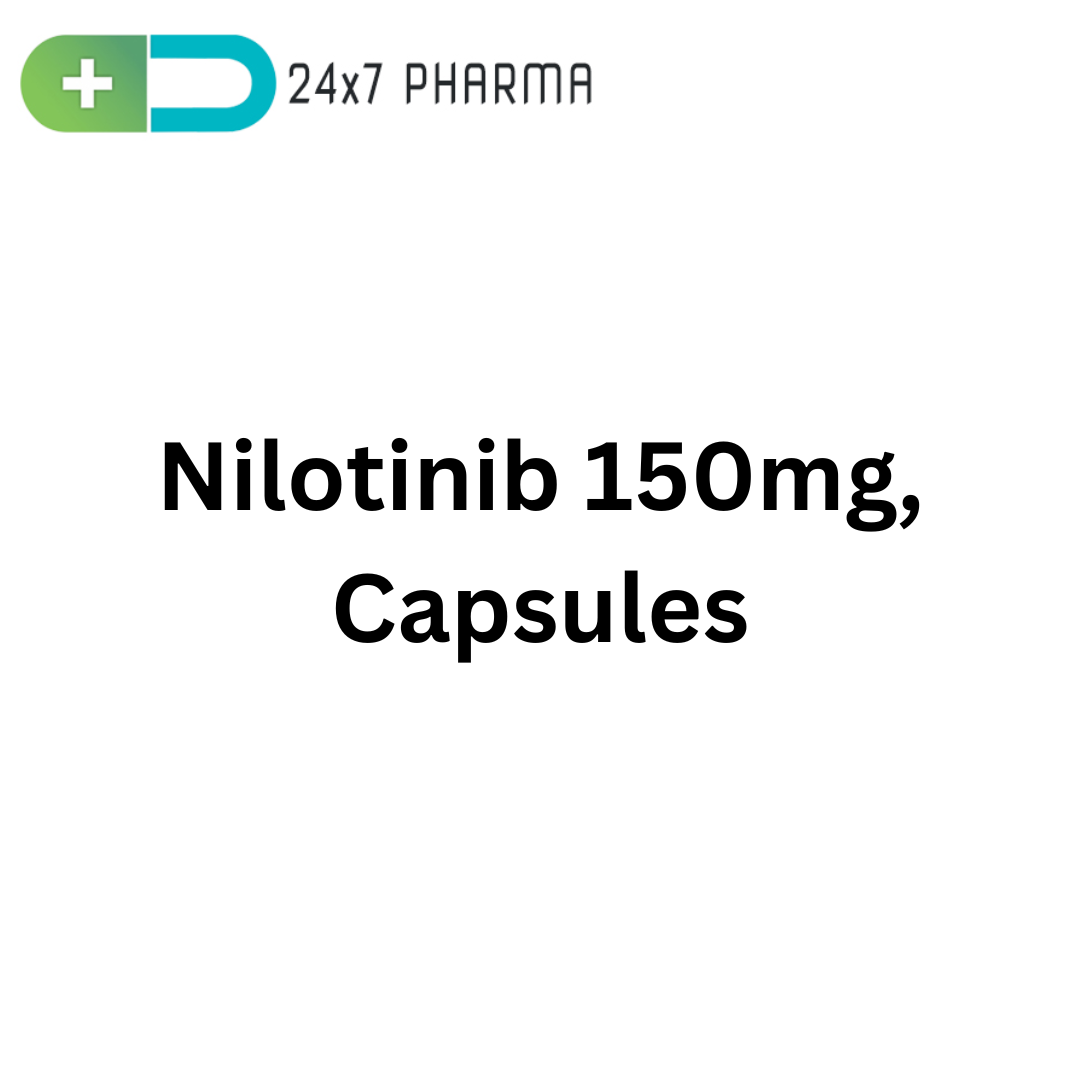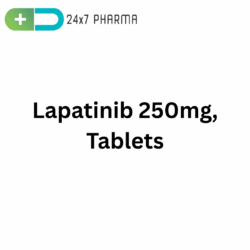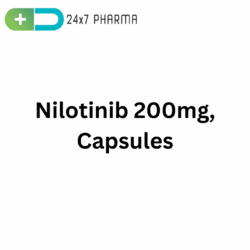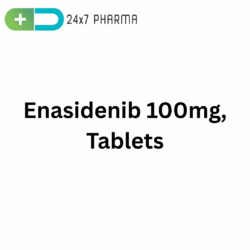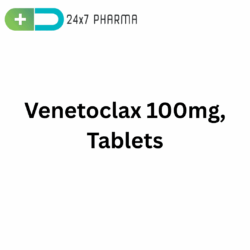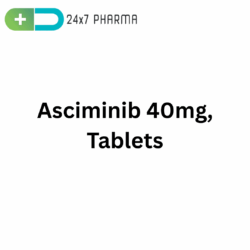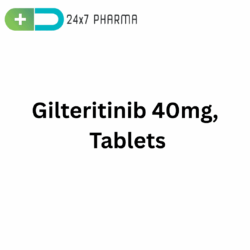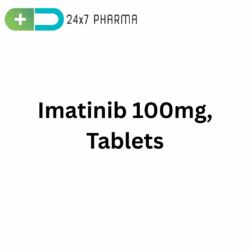Nilonix 150mg, Nilotinib Capsules
Nilotinib is the active ingredient of the prescription anticancer medication Nilonix 150mg. Nilotinib belongs to the class of drugs called tyrosine kinase inhibitors (TKIs), designed to treat certain types of blood cancers, especially chronic myeloid leukemia (CML). A genetic mutation causes CML, a rare white blood cell malignancy, in which aberrant cells proliferate uncontrolled. Nilotinib was developed as a second-generation TKI, offering better efficacy in cases where first-line treatments like imatinib fail or cause intolerable side effects.
Nilonix is typically prescribed under strict medical supervision in oncology or hematology settings. It represents a targeted therapy, meaning it specifically attacks cancer-causing pathways while sparing normal cells, thereby reducing overall toxicity compared to traditional chemotherapy.
What is Nilonix 150mg?
Adults and children (over a specific age/weight) with Philadelphia chromosome-positive chronic myeloid leukemia (Ph+ CML) are the main patients treated with Nilonix 150mg, a capsule formulation of nilotinib. Unlike broad-spectrum chemotherapy, Nilotinib specifically targets the abnormal protein that drives leukemia cell growth.
It is usually prescribed for:
- Newly diagnosed CML patients in chronic phase.
- Patients resistant or intolerant to prior therapy including imatinib (Gleevec).
How it Works / Mechanism of Action
The Philadelphia chromosome, a genetic anomaly brought on by a translocation between chromosomes 9 and 22, is the cause of CML. The BCR-ABL fusion gene, which results from this anomaly, generates the aberrant protein known as BCR-ABL tyrosine kinase. Leukemia is caused by this protein’s constant signals for unchecked cell division and cell death prevention.
Nilotinib’s mechanism of action:
- Nilotinib attaches itself to the BCR-ABL tyrosine kinase’s ATP-binding site.
- This prevents the transfer of phosphate groups (phosphorylation), blocking downstream signaling pathways responsible for cancer cell survival and proliferation.
- As a result, the abnormal leukemia cells die (apoptosis), and normal blood cell production is restored.
- Nilotinib is more potent than imatinib and can inhibit certain imatinib-resistant mutations, making it a valuable option for difficult-to-treat CML cases.
How to Use / Indications
Nilonix 150mg is indicated for:
- Treatment of adult patients with Ph+ CML who have just received a diagnosis during the chronic phase.
- Treatment of adults and pediatric patients with chronic or accelerated phase Ph+ CML who are resistant or intolerant to previous therapies including imatinib.
- It is not generally used for blast crisis (advanced phase of CML) unless specifically recommended by the doctor.
How to Take / Dosage
Standard Adult Dose (Chronic Phase CML):
- 300 mg orally twice daily (total daily dose = 600 mg).
Accelerated Phase or Resistant Cases:
- 400 mg orally twice daily (total daily dose = 800 mg).
Pediatric Dosage:
- Based on body surface area (BSA) but generally 230 mg/m² twice daily, not exceeding 400 mg twice daily.
Administration guidelines:
- Take on an empty stomach: At least 2 hours after a meal and 1 hour before the next meal.
- Swallow the capsule whole with water. Do not open or crush the capsule.
- Maintain 12-hour gaps between doses.
- If a dose is missed, skip it and take the next dose at the regular time. Do not double dose.
Other Dosage Considerations
- Renal Impairment: Usually no dose adjustment required, but caution is advised.
- Hepatic Impairment: Dose adjustments may be necessary depending on severity.
- Elderly Patients: Standard dose but close monitoring required.
- Drug-resistant mutations: Higher doses may be used under medical supervision.
Side Effects
Like all targeted therapies, Nilotinib can cause side effects, though not everyone experiences them. Common and serious adverse reactions include:
Common side effects:
- Headache
- Nausea, vomiting, diarrhea, constipation
- Rash, itching, dry skin
- Fatigue, muscle pain, joint pain
- Abdominal pain
- Night sweats
Serious side effects:
- QT prolongation, a potentially fatal abnormal heart rhythm
- Pancreatitis (inflammation of the pancreas)
- Liver toxicity (increased liver enzymes, jaundice)
- Low blood cell counts (anemia, neutropenia, thrombocytopenia)
- Fluid retention and edema
- Severe allergic reactions (rare)
- Patients require regular ECG, liver function tests, and blood counts during therapy.
Storage
- Store Nilonix capsules at room temperature (15–30°C).
- Keep away from direct heat, light, and moisture.
- Keep in the original packaging until use.
- Keep out of reach of children and pets.
- Do not use beyond the expiry date.
Benefits
- Highly effective in controlling CML progression.
- Better potency compared to imatinib.
- Works against many imatinib-resistant mutations.
- Improves survival rates and quality of life in CML patients.
- Oral therapy – convenient for long-term management.
Prescription
- Nilonix 150mg is a prescription-only medicine.
- It should only be taken under the guidance of an oncologist/hematologist.
- Requires routine monitoring of electrolytes, liver function, blood counts, and ECG.
- Dose adjustments are made depending on patient response and side effects.
- Self-medication is strongly discouraged due to the risk of serious cardiac and hepatic complications.
Interaction
Nilotinib interacts with many drugs, foods, and supplements.
Drug interactions:
- CYP3A4 inhibitors (ketoconazole, clarithromycin, ritonavir) → increase nilotinib levels and risk of toxicity.
- CYP3A4 inducers (rifampicin, phenytoin, carbamazepine, St. John’s Wort) → reduce nilotinib effectiveness.
- Antiarrhythmic drugs (amiodarone, sotalol, quinidine) → increase QT prolongation risk.
- Antacids and proton pump inhibitors → may alter absorption.
Food interactions:
- Grapefruit juice should be avoid as it increases drug concentration.
- Must be take on an empty stomach to avoid enhanced absorption and side effects.
FAQs
Can Nilonix cure CML?
Not exactly a cure, but it controls the disease long-term and helps patients live a near-normal life.
How long do I need to take Nilotinib?
It is usually take lifelong unless the doctor decides to stop after achieving deep molecular remission.
Can I stop Nilonix if I feel better?
No. Stopping without medical guidance can cause relapse or resistance.
Can I take other medicines with Nilonix?
Only after consulting your doctor, since it has major interactions.
Conclusion
A very successful second-generation tyrosine kinase inhibitor, Nilonix 150mg (Nilotinib Capsules) is used to treat CML that has the Philadelphia chromosome. It works by blocking the abnormal BCR-ABL protein responsible for leukemia cell growth. With proper medical supervision, Nilonix significantly improves patient survival, disease control, and quality of life.
However, due to its risks of QT prolongation, liver toxicity, and drug interactions, careful monitoring and prescription guidance are essential. Patients should strictly adhere to dosage instructions, avoid self-medication, and consult their doctor regarding any side effects or interactions.

